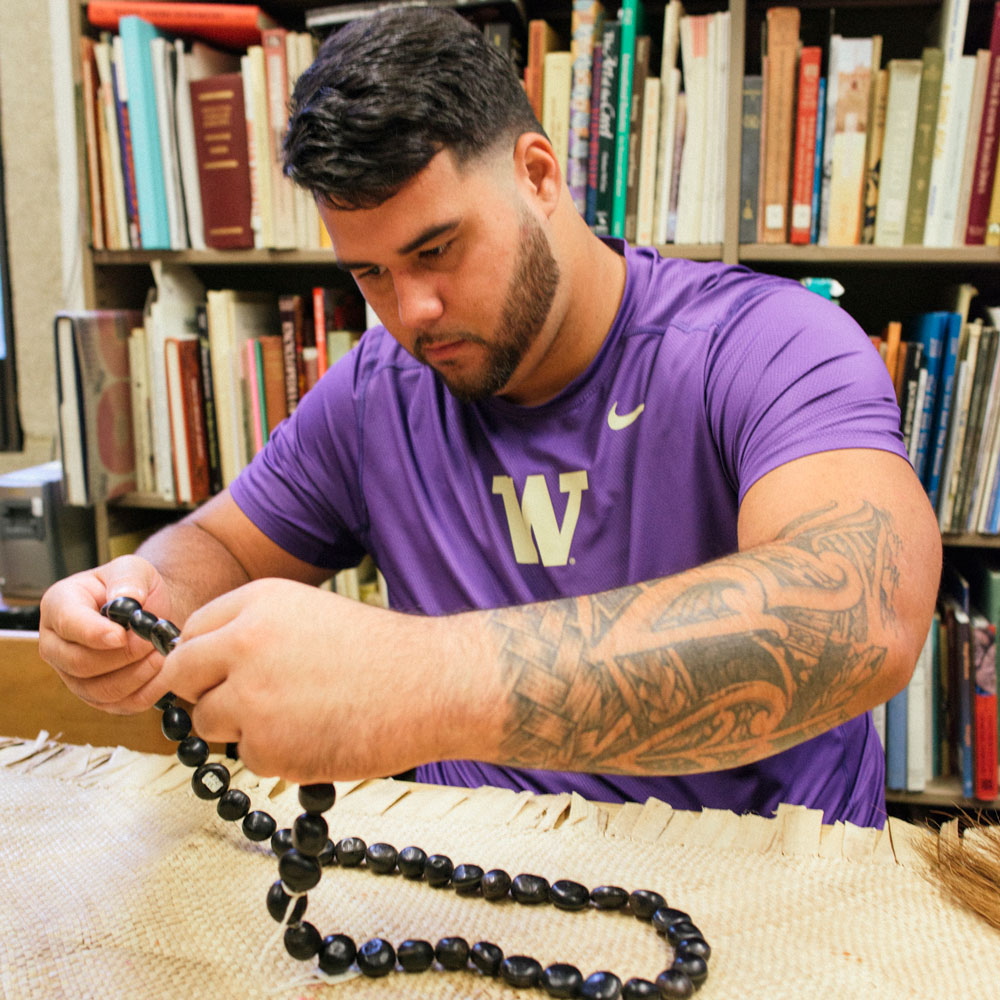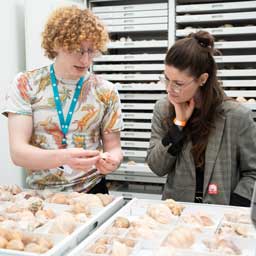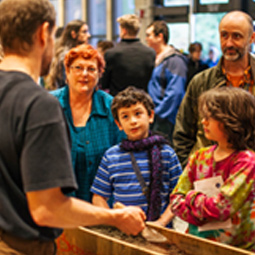"I picked the fala mats as one of the objects I wanted to study because as kids, we used to sit and watch my grandma, my mom and all the ladies in our family prepare these mats. Falas are Samoan rugs—it’s what we put down as decorations for our houses. A lot of Polynesians can’t afford to buy the rugs we have in America. We use the resources God has given us in land and nature. Making falas is one of the ways we stay connected with our roots, our ground, where we come from.
Back in the old days, I know they wrapped people in falas when they passed away. I play football and it’s a tough sport. I put the fala on my arm for that battle, to wrap my enemies in it and either take them with me or bury them. The waves connect me with my family back in Samoa, with the ocean. The heart is for my grandmother, who just passed away. Her name is Alofa. Translated into English, it means love."
One of the messages I give to younger kids is: don’t be embarrassed of your culture. Don’t be embarrassed of where you come from.
Cory Fuavai, UW Student
Cory Fuavai is a senior anthropology major at the University of Washington and an offensive lineman for the Huskies. Cory works with Curator of Oceanic & Asian Culture Holly Barker to gain research and leadership experience at the Burke in support of his goal to become a Matai chief.
Excerpted from "In Our Own Words," the Burke Museum 2015 Annual Report.


